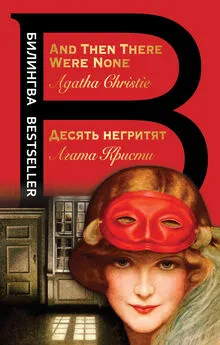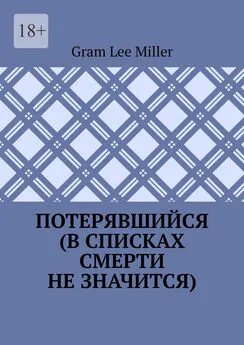Linda Miller - Here and Then
- Название:Here and Then
- Автор:
- Жанр:
- Издательство:неизвестно
- Год:неизвестен
- ISBN:нет данных
- Рейтинг:
- Избранное:Добавить в избранное
-
Отзывы:
-
Ваша оценка:
Linda Miller - Here and Then краткое содержание
Here and Then - читать онлайн бесплатно ознакомительный отрывок
Интервал:
Закладка:
Selected praise for
LINDA LAEL
MILLER
“Linda Lael Miller is the greatest.”
—Affaire de Coeur
“Her characters come alive and walk right off the pages and into your heart.”
—Rendezvous
“Linda Lael Miller knows how to reveal the hearts of her characters, creating memorable people readers care about.”
—Romantic Times BOOKreviews on One Wish
“A complex plot, blended with sinister motivations and genuine emotions, makes this one terrific page-turner.”
—Romantic Times BOOKreviews on Never Look Back
Here and Then
Linda Lael Miller
www.millsandboon.co.uk
LINDA LAEL MILLER
grew up in rural Washington as the daughter of a town marshal. The self-confessed barn goddess was inspired to pursue a career as an author after an elementary school teacher said the stories she was writing might be good enough to be published.
Linda broke in to publishing in the early 1980s. She is now a New York Times bestselling author of more than sixty contemporary, romantic-suspense and historical novels, including McKettrick’s Choice, The Man from Stone Creek and Deadly Gamble. When not writing, Linda enjoys riding her horses and playing with her cats and dogs. Through her Linda Lael Miller Scholarships for Women, she provides grants to women who seek to improve their lot in life through education.
For more information about Linda, her scholarships and her novels, visit her Web site, www.lindalaelmiller.com.
For Jane and Dick Edwards,
the kind of friends I always hoped I’d have
Contents
Chapter One
Chapter Two
Chapter Three
Chapter Four
Chapter Five
Chapter Six
Chapter Seven
Chapter Eight
Chapter Nine
Chapter Ten
Chapter Eleven
Chapter Twelve
Chapter Thirteen
Chapter Fourteen
Chapter Fifteen
Chapter One
Aunt Verity’s antique necklace lay in an innocent, glimmering coil of gold on the floor of the upstairs hallway. An hour before, when Rue Claridge had been carrying her suitcases upstairs, it had not been there.
Frowning, Rue got down on one knee and reached for the necklace, her troubled gaze rising to the mysterious, sealed door in the outside wall. Beyond it was nothing but empty space. The part of the house it had once led to had been burned away a century before and never rebuilt.
Aunt Verity had hinted at spooky doings in the house over the years, tales concerning both the door and the necklace. Rue had enjoyed the yarns, but being practical in nature, she had promptly put them out of her mind.
Rue’s missing cousin, Elisabeth, had mentioned the necklace and the doorway in those strange letters she’d written in an effort to outline what was happening to her. She’d said a person wearing the necklace could travel through time.
In fact, Elisabeth—gentle, sensible Elisabeth—had claimed she’d clasped the chain around her neck and soon found herself in the 1890s, surrounded by living, breathing people who should have been dead a hundred years.
A chill wove a gossamer casing around Rue’s spine as she recalled snatches of Elisabeth’s desperate letters.
You’re the one person in the world who might, just might, believe me. Those wonderful, spooky stories Aunt Verity told us on rainy nights were true. There is another world on the other side of that door in the upstairs hallway, one every bit as solid and real as the one you and I know, and I’ve reached it. I’ve been there, Rue, and I’ve met the man meant to share my life. His name is Jonathan Fortner, and I love him more than my next heartbeat, my next breath.
A pounding headache thumped behind Rue’s right temple, and she let out a long sigh as she rose to her feet, her fingers pressing the necklace deep into her palm. With her other hand, she pushed a lock of sandy, shoulder-length hair back from her face and stared at the sealed door.
Years ago there had been rooms on the other side, but then, late in the last century, there had been a tragic fire. The damage had been repaired, but the original structure was changed forever. The door had been sealed, and now the doorknob was as old and stiff as a rusted padlock.
“Bethie,” Rue whispered, touching her forehead against the cool, wooden panel of the door, “where are you?”
There was no answer. The old country house yawned around her, empty except for the ponderous nineteenth-century furniture Aunt Verity had left as a part of her estate and a miniature universe of dust particles that seemed to pervade every room, every corner and crevice.
At thirty, Rue was an accomplished photojournalist. She’d dodged bullets and bombs in Belfast, photographed and later written about the massacre in Tiananmen Square, covered the invasion of Panama, nearly been taken captive in Baghdad. And while all of those experiences had shaken her and some had left her physically ill for days afterward, none had frightened her so profoundly as Elisabeth’s disappearance.
The police and Elisabeth’s father believed Elisabeth had simply fled the area after her divorce, that she was lying on a beach somewhere, sipping exotic tropical drinks and letting the sun bake away her grief. But because she knew her cousin, because of the letters and phone messages that had been waiting when she returned from an assignment in Moscow, Rue took a much darker view of the situation.
Elisabeth was wandering somewhere, if she was alive at all, perhaps not even remembering who she was. Rue wouldn’t allow herself to dwell on all the other possibilities, because they didn’t bear thinking about.
Downstairs in the big kitchen, she brewed a cup of instant coffee in Elisabeth’s microwave and sat down at the big, oak table in the breakfast nook to go over the tattered collection of facts one more time. Before her were her cousin’s letters, thoughtfully written, with no indications of undue stress in the familiar, flowing hand.
With a sigh, Rue pushed away her coffee and rested her chin in one palm. Elisabeth had come to the house the two cousins had inherited to get a new perspective on her life. She’d planned to make her home outside the little Washington town of Pine River and teach at the local elementary school in the fall. The two old ladies across the road, Cecily and Roberta Buzbee, had seen Elisabeth on several occasions. It had been Miss Cecily who had called an ambulance after finding Elisabeth unconscious in the upstairs hallway. Rue’s cousin had been rushed to the hospital, where she’d stayed a relatively short time, and soon after that, she’d vanished.
Twilight was falling over the orchard behind the house, the leaves thinning on the gray-brown branches because it was late October. Rue watched as a single star winked into view in the purple sky. Oh, Bethie, she thought, as a collage of pictures formed in her mind…an image of a fourteen-year-old Elisabeth predominated—Bethie, looking down at Rue from the door of the hayloft in the rickety old barn. “Don’t worry,” the woman-child had called cheerfully on that long-ago day when Rue had first arrived, bewildered and angry, to take sanctuary under Aunt Verity’s wing. “This is a good place and you’ll be happy here.” Rue saw herself and Bethie fishing and wading in the creek near the old covered bridge and reading dog-eared library books in the highest branches of the maple tree that shaded the back door. And listening to Verity’s wonderful stories in front of the parlor fire, chins resting on their updrawn knees, arms wrapped around agile young legs clad in blue jeans.
The jangle of the telephone brought Rue out of her reflections, and she muttered to herself as she made her way across the room to pick up the extension on the wall next to the sink. “Hello,” she snapped, resentful because she’d felt closer to Elisabeth for those few moments and the caller had scattered her memories like a flock of colorful birds.
“Hello, Claridge,” a wry male voice replied. “Didn’t they cover telephone technique where you went to school?”
Rue ignored the question and shoved the splayed fingers of one hand through her hair, pulling her scalp tight over her forehead.
“Hi, Wilson,” she said, Jeff’s boyish face forming on the screen of her mind. She’d been dating the guy for three years, on and off, but her heart never gave that funny little thump she’d read about when she saw his face or heard his voice. She wondered if that meant anything significant.
“Find out anything about your cousin yet?”
Rue leaned against the counter, feeling unaccountably weary. “No,” she said. “I talked to the police first thing, and they agree with Uncle Marcus that she’s probably hiding out somewhere, licking her wounds.”
“You don’t think so?”
Unconsciously, Rue shook her head. “No way. Bethie would never just vanish without telling anyone where she was going…she’s the most considerate person I know.” Her gaze strayed to the letters spread out on the kitchen table, unnervingly calm accounts of journeys to another point in time. Rue shook her head again, denying that such a thing could be possible.
“I could fly out and help you,” Jeff offered, and Rue’s practical heart softened a little.
“That won’t be necessary,” she said, twisting one finger in the phone cord and frowning. Finding Elisabeth was going to take all her concentration and strength of will, she told herself. The truth was, she didn’t want Jeff getting in the way.
Her friend sighed, somewhat dramatically. “So be it, Claridge. If you decide I have any earthly use, give me a call, will you?”
Rue laughed. “What?” she countered. “No violin music?” In the next instant, she remembered that Elisabeth was missing, and the smile faded from her face. “Thanks for offering, Jeff,” she said seriously. “I’ll call if there’s anything you can do to help.”
After that, there didn’t seem to be much to say, and that was another element of the relationship Rue found troubling. It would have been a tremendous relief to tell someone she was worried and scared, to say Elisabeth was more like a sister to her than a cousin, maybe even to cry on a sympathetic shoulder. But Rue couldn’t let down her guard that far, not with Jeff. She often got the feeling that he was just waiting for her to show weakness or to fall on her face.
The call ended, and Rue, wearing jeans and a sweatshirt, put on a jacket and went out to the shed for an armload of the aged applewood that had been cut and stacked several years before. Because Rue and Elisabeth had so rarely visited the house they’d inherited, the supply had hardly been diminished.
As she came through the back door, the necklace caught her eye, seeming to twinkle and wink from its place on the kitchen table. Rue’s brow crimped thoughtfully as she made her way into the parlor and set the fragrant wood down on the hearth.
After moving aside the screen, she laid twigs in the grate over a small log of compressed sawdust and wax. When the blaze had kindled properly, she added pieces of seasoned wood. Soon, a lovely, cheerful fire was crackling away behind the screen.
Rue adjusted the damper and rose, dusting her hands off on the legs of her jeans. She was tired and distraught, and suddenly she couldn’t keep her fears at bay any longer. She’d been a reporter for nine eventful years, and she knew only too well the terrible things that could have happened to Elisabeth.
Читать дальшеИнтервал:
Закладка:










